
8 View the gallery
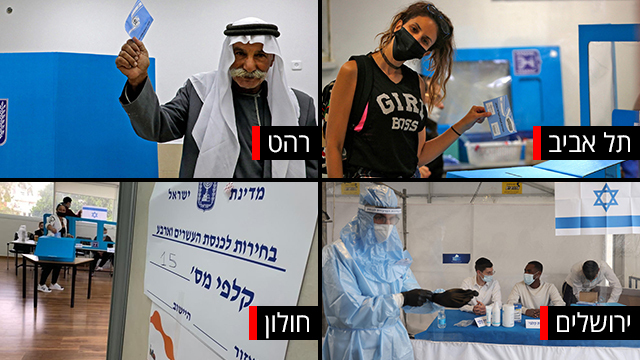

The Likud jumped in Rahat, in Tel Aviv the right-wing bloc received the least. Jerusalem and Holon? Right-wing, but less so
(Photo: Kobe Cuenx, AFP)
Exactly one year has passed between the elections for the 23rd Knesset and the elections for the 24th Knesset. A year of plague from which more than 6,000 people died, a year of political crisis, a year at the end of which a vaccination campaign made Israel the first country where half of the population is vaccinated. But what has changed in the political map and what was the extent of the impact of the corona plague? The answers to both questions are probably – not many.
From an examination of the percentage of votes cast for Netanyahu’s supporters (with Bennett) in the current election compared to the previous election, it seems that the change is small – although it tends to detract from Netanyahu. This time the Likud, Yemina, Shas, Torah Judaism and Religious Zionism received 48.2% of the vote, in the elections a year ago the same parties (including Jewish Power instead of Religious Zionism) received 48.9%.
8 View the gallery
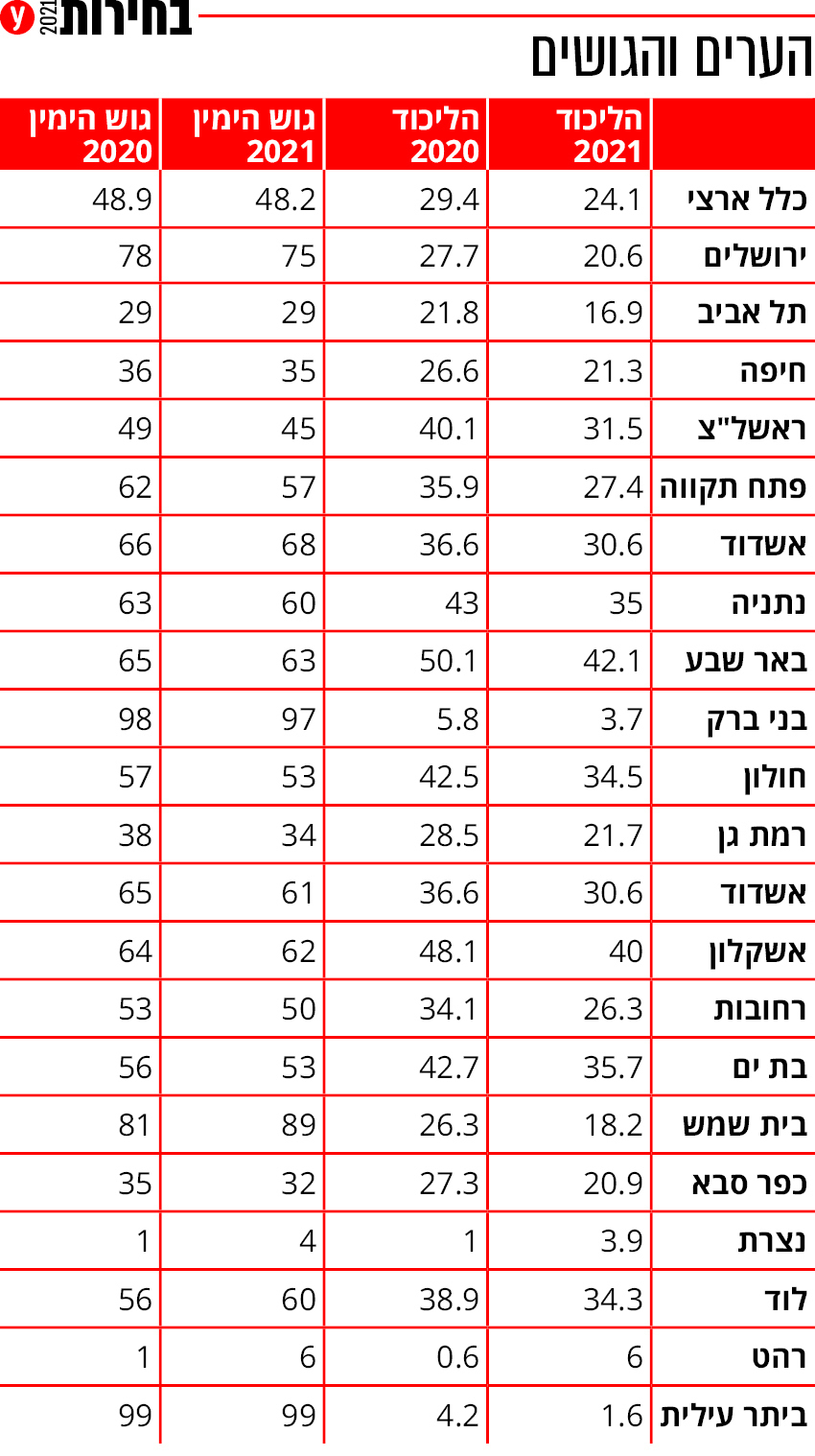

The data in percent. The right-wing bloc includes Netanyahu’s supporters along with the right
In most cities, there has been a decline in support for the right-wing bloc. These include Jerusalem, Rishon Lezion, Petah Tikva, Netanya, Holon, Ramat Gan, Ashdod and many other cities. Of the large Jewish cities, only Ashdod and Beit Shemesh – cities with a high percentage of ultra-Orthodox – went in the opposite direction, to greater support for the right-wing bloc.


But the main change was mainly due to the support of the Arab sector in the Likud. Although this is only a few percent, compared to last year, support for Prime Minister Benjamin Netanyahu increased significantly after the campaign he conducted in the sector. In Nazareth, from 1% in 2020, 3.9% of voters voted for the Likud, this time in Rahat the change was even greater – from 0.6% to 6%, a 10-fold jump. There was also an increase in Likud support in Umm al-Fahm, Kfar Qassem and Shefar’am, if Because more moderate. The rest of the right-wing bloc parties hardly voted in the Arab cities.
In contrast, in all 15 major cities – and without exception – there has been a decline in Likud support. In Rishon Lezion, Petah Tikva, Bnei Brak, Holon, Ashkelon and Bat Yam, the decline was particularly large, at 8 percentage points. Across the country, the decline was smaller, partly due to Arab support: from 29.4% last year to 24.1% Likud support this time.
Election Commission CEO Orly Adas updates on the results of the truth
8 View the gallery
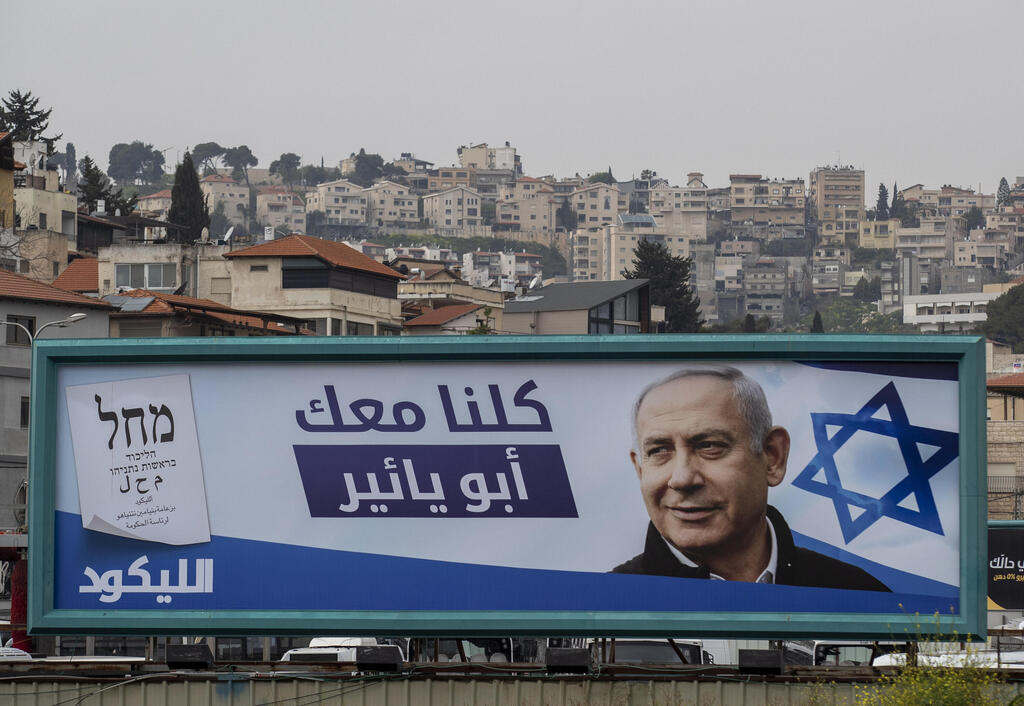

Netanyahu’s campaign in Nazareth. From 1% in 2020 to 3.9% this year
(Photo: EPA)
8 View the gallery
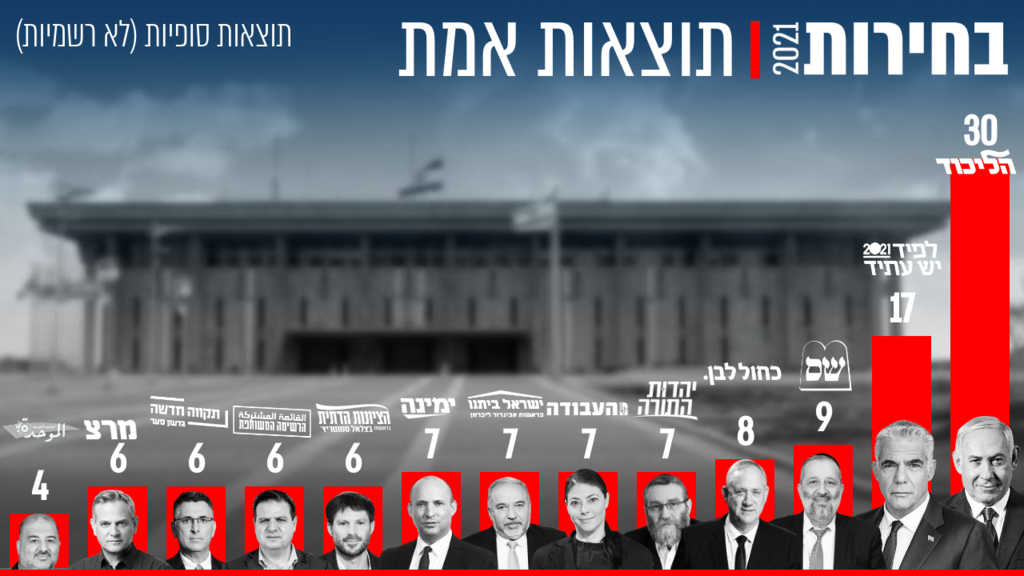

The cities where the support for the right-wing bloc is greatest are, as expected, the ultra-Orthodox cities. In Bnei Brak, 98% voted for one of the bloc’s parties (most of them, of course, in Torah Judaism and Shas), in Beitar Illit – more than 99%. In this city, one of the centers of the Corona, the largest party among those not in the right bloc is Rafa’s opposition. La, 0.18%.
Of the 15 largest cities in the country, the most “leftist” city, or Netanyahu opposes if you will, is – also not surprisingly – Tel Aviv. Only 29% voted for one of the parties affiliated with the Netanyahu bloc, or on Bennett’s right.
A review of the results on the Election Committee website also raised questions about the veracity of some of the results. Thus, for example, in Tzur Yitzhak it is written that 160 voted for the joint list. An examination of the various polling stations there did not show much vote for the same Arab party, and in one of them it was written – “The results at this polling station have been corrected.” In another case, in Rahat, the fourth largest party is Yaron Zelicha’s economic one, which according to the website was voted by 507 residents, 3%.
8 View the gallery
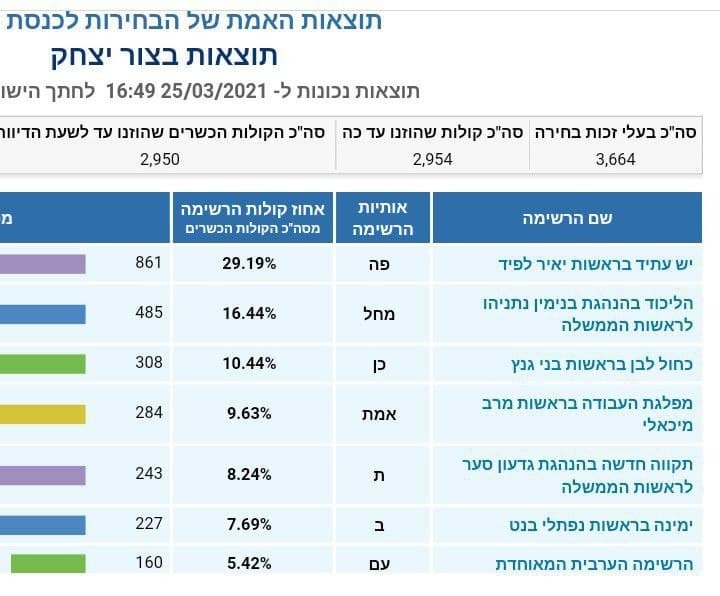

160 chose Tzur Yitzchak Baram?
8 View the gallery
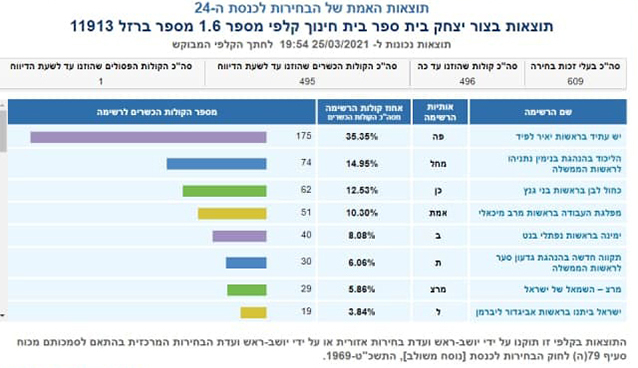

“The results have been corrected.” The comment at one of the polling stations in Tzur Yitzhak
8 View the gallery
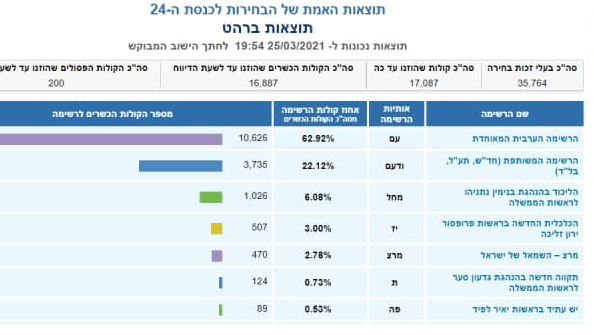

507 votes for Zelicha in Rahat?
The effect of the epidemic – and the vaccination campaign – was probably not very great. Gideon Saar’s new hope, in which former corona committee chairman Yifat Shasha Bitton, who has often clashed with Netanyahu, was placed in second place, received only six seats. Bennett’s right who published the book “How to defeat an epidemic” and placed the Shulmanim leader Abir in seventh place Kara, received seven seats.
On the other hand, parties such as Bezalel Smutrich’s Religious Zionism and the work of Merav Michaeli – whose campaign did not emphasize the Corona – came as a big surprise. Even Meretz, which surprised with six seats, did not place special emphasis on the failures of the struggle in Corona, and Blue and White focused on trying to stop Netanyahu. The prime minister himself, who placed special emphasis on the vaccination campaign, did not enlarge the bloc – as we will see from these figures.
8 View the gallery
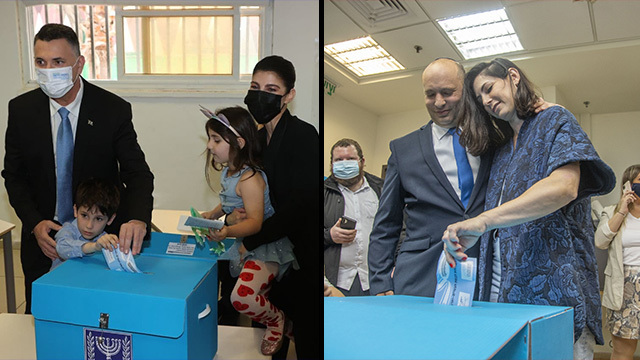

Bennett, Saar and the women. Focused on Corona, and were disappointed
(Photo: Eli Desa, Moti Kimhi)
Dr. Yonatan Freeman, from the Department of Political Science at the Hebrew University of Jerusalem, actually believed that the Corona did play a role in the election. “The fact that Bennett and Saar visited the prime minister while Israel was in a relatively good position strengthened the public’s opinion that Netanyahu may have acted correctly. “The work we did to get vaccines also contributed to their loss,” he said.
“There was a big party crash here – blue and white – and that led to a lot of votes for parties like Meretz and Labor. Unlike the previous elections, there were a lot of alternatives and there was no persuasion to vote for an alternative to the prime minister. If you look at parties like Meretz and Labor, “People may have tried to ‘go home’ and have been more motivated to go to the polls, unlike other parties.”
Yohanan Plesner, president of the Israel Democracy Institute, said that “we would expect Corona to have an impact on voting patterns because the epidemic brought with it economic uncertainty, along with the great criticism of the number of days under closure and failure at Ben Gurion Airport – and on the other hand vaccination. Because we see a minor change in the turnout, this is proof that we are in a time when politics is influenced by identity and a sense of belonging. Identity affects much more than political preferences. “

